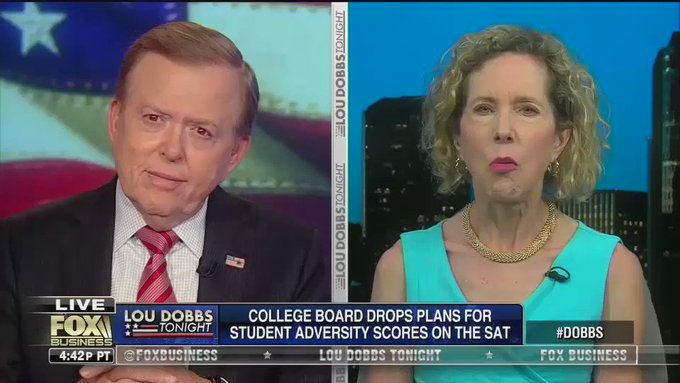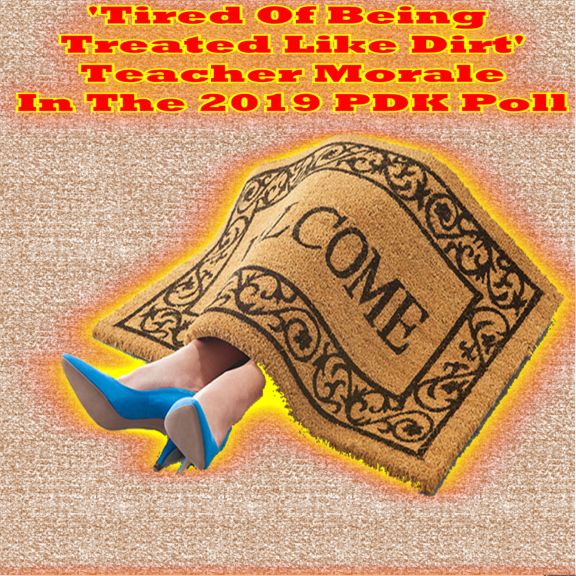A battle over California charter schools ends — for now — with a deal in Sacramento
Warring factions of California’s K-12 education system have reached
an agreement on legislation that would place new restrictions on charter schools and pause a long-standing battle at the state Capitol between politically powerful teachers unions and deep-pocketed charter advocates.
an agreement on legislation that would place new restrictions on charter schools and pause a long-standing battle at the state Capitol between politically powerful teachers unions and deep-pocketed charter advocates.
The deal, announced Wednesday,
gives public school districts more authority to reject petitions for new charter campuses, phases in stricter credentialing requirements for charter school teachers and places a two-year moratorium on new virtual charter schools. The accord marks a rare compromise between groups that
have poured millions into local and statewide campaigns to gain leverage in a fight over public education dollars.
gives public school districts more authority to reject petitions for new charter campuses, phases in stricter credentialing requirements for charter school teachers and places a two-year moratorium on new virtual charter schools. The accord marks a rare compromise between groups that
have poured millions into local and statewide campaigns to gain leverage in a fight over public education dollars.
Aides to Gov. Gavin Newsom held separate meetings with each side and acted as an intermediary in intense negotiations over Assembly Bill 1505 that they said began in late spring. The governor, who was publicly optimistic about striking an agreement ahead of a looming legislative deadline, said talks continued throughout the weekend and late into the night this week.
“A lot of hard work has gone into this,
and all that matters to me is the result,” Newsom told reporters Tuesday. “If we can pull something off, it’s a significant thing and it’s not easy. A lot of people have strong opinions on both sides.”
and all that matters to me is the result,” Newsom told reporters Tuesday. “If we can pull something off, it’s a significant thing and it’s not easy. A lot of people have strong opinions on both sides.”
The agreement could allow the Newsom administration to move past a complex political issue that has splintered the Capitol and threatened to dominate the education policy debate during his tenure.
Newsom’s office said the bill, the biggest revision of state charter school
law in more than 25 years, settles critical points of contention between charters and traditional public schools and lays a foundation for the groups to work together on efforts that are in the best interest of children. Some education advocates are hopeful that charter backers and teachers unions will team up on 2020 ballot measures to increase school funding, instead of fighting over reform.
law in more than 25 years, settles critical points of contention between charters and traditional public schools and lays a foundation for the groups to work together on efforts that are in the best interest of children. Some education advocates are hopeful that charter backers and teachers unions will team up on 2020 ballot measures to increase school funding, instead of fighting over reform.
Charter schools in California are publicly funded and independently operated. Originally authorized in 1992 legislation to promote educational innovation, charter schools have evolved from an experiment to a system that enrolls more than 600,000 students across the state. California ties education funding to enrollment,
and charters have often been pitted against traditional neighborhood schools in a competition for students.
and charters have often been pitted against traditional neighborhood schools in a competition for students.
Teachers unions and reform advocates have accused charter schools of draining the financial resources of local districts that might already be strapped and have
argued that the state gives districts little say when it comes to approving new schools. Critics have also called for more accountability for charter operations and performance.
argued that the state gives districts little say when it comes to approving new schools. Critics have also called for more accountability for charter operations and performance.
State law currently requires a school district to approve any new charters that meet basic requirements. Charter school proponents can appeal denials to a county board of education and then the State Board of Education, an entity whose members are appointed by the governor and tended to side with new charters under former Gov. Jerry Brown.
The new agreement provides some notable wins to teachers unions, which
negotiated the deal with a labor coalition that included the California Teachers Assn., California Federation of Teachers, California Labor Federation and California School Employees Assn.
negotiated the deal with a labor coalition that included the California Teachers Assn., California Federation of Teachers, California Labor Federation and California School Employees Assn.
“After months of honest and difficult conversations, we have made significant progress on behalf of our students,” the labor coalition said in a statement. “We believe the measure California lawmakers will vote on will lead to a more equitable learning environment for students in California’s neighborhood public schools.”
Under the bill, local school boards would be allowed to reject new charter petitions based on the school’s potential fiscal effects
on the district and whether the charter seeks to offer programs that the district already provides, according to the governor’s office.
on the district and whether the charter seeks to offer programs that the district already provides, according to the governor’s office.
The deal would require all new charter school teachers to hold the same credentials as traditional public schools next year and phase in requirements for existing teachers over five years, the governor’s office said.
The proposal would also eliminate the state board’s role as a chartering authority, allowing it only to weigh appeals to determine whether
a school district abused its discretion in denying the petition.
a school district abused its discretion in denying the petition.
Under existing law, the agency that grants a petition allowing a charter to operate is often responsible for providing oversight of that school regardless of where its campus is located — the Board of Education in Sacramento has, in some instances, overseen charter schools as far away as Los Angeles and San Diego.
Assemblyman Patrick O’Donnell (D-Long Beach), a former high school teacher who introduced Assembly Bill 1505 this year, criticized the system in a July hearing. CONTINUE READING: A battle over California charter schools ends — for now — with a deal in Sacramento - Los Angeles Times



























